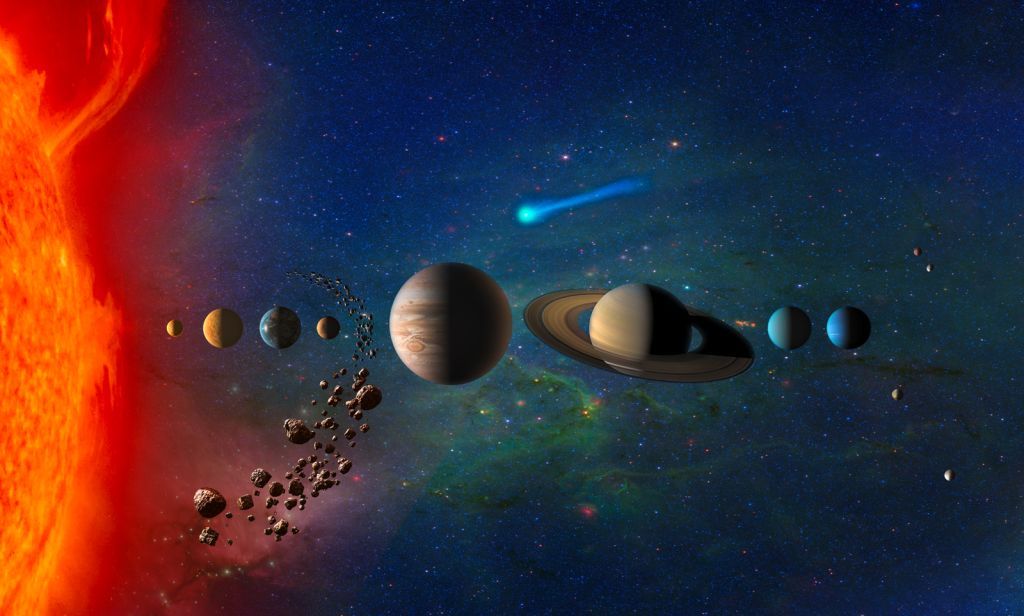25 Space Quiz Questions – How Many Answers Do You Know?
Fun Quiz Questions And Answers For Kids
How much do you know about the Sun, Planets, Moons, Asteroids and Comets that fill our solar system? What about the Stars and Galaxies that seems to fill the night sky as far as we can see? Challenge yourself by taking the quiz below which is perfect for kids to test their knowledge of Space and Astronomy! Don’t cheat, but the answers are found at the bottom of the page, complete with links to pages where you can learn more about each answer! And don’t forget to have FUN!
Prepared To Be Challenged By These 25 Space Quiz Questions!
Quiz Questions;
- Launched on October 4th 1957, what was the name of the first artificial satellite to orbit the Earth?
- Aboard his Vostok spacecraft, who became the first man in space on April 12th, 1961?
- What was the name of the first American in Space?
- The Apollo 11, landed on the Moon on July 20th, 1969. What was the name of the first human to walk on the Moon?
- How many men have walked on the Moon?
- Can you hear the Sun or anyone talking to you when in space?
- How fast does the International Space Station (ISS) orbit the Earth?
- How much have ‘space tourist’ paid to visit the ISS?
- How many consecutive days did cosmonaut Valeri Polyakov (aboard the Mir Space Station) spend in space?
- What is the name of the galaxy that our solar system resides in?
- With your naked eye, what is the maximum number of stars you can see when looking up into the night sky?
- The Sun, the star at the centre of our solar system, contains what percentage of the mass in the solar system?
- What is the largest asteroid in the main asteroid belt between Mars and Jupiter?
- How many Earth's could fit inside of Jupiter, the solar system’s largest planet?
- Where would you find Olympus Mons, regarded as the largest mountain in the solar system?
- Zipping around the Sun in only 88 Earth days, what is the name of the closest planet to our nearest star?
- One of Jupiter’s 4 large Galilean Moons and bigger than the Planet Mercury, what is the name of the solar system's largest moon?
- How many days does it take for the Earth to complete an orbit of the Sun?
- How many Earth years does it take for the Planet Neptune to complete one orbit of the Sun?
- Is Pluto considered a Planet or Dwarf Planet?
- Orbited by more moons than any other planet in the solar system, how many moons does Jupiter have?
- How many moons orbit the Planet Mars? What are their names?
- In 1994, the Hubble telescope photographed 'Comet Shoemaker-Levy 9' dramatically crash into which planet?
- We all know the name, but what does the acronym NASA stand for?
- When a meteoroid enters the earth's atmosphere and leaves a trail across the sky what do we commonly call this?
Answers;
1. The Soviet satellite Sputnik.
2. The Soviet Cosmonaut Yuri Gagarin.
3. Alan Shepard.
4. Neil Armstrong.
5. A total of 12 men (two from each of the following missions Apollo 11, Apollo 12, Apollo 14, Apollo 15, Apollo 16 and Apollo 17).
6. Unfortunately No; there is no atmosphere for sound waves to travel through.
7. The (ISS) travels at 28,200 kilometres per hour (or 17,500 mph).
8. Between $20-40 million each.
9. An amazing 438 days. See more Space Traveller Records.
10. The Milky Way Galaxy.
11. About 3,000 stars. In total you could see about 5,000 if the Earth below you didn't obscure your view of the entire sky.
12. Approx 99%, hence why its gravity is so dominant!
13. The asteroid Ceres (also referred to as a dwarf planet).
14. About 1300!
15. The Planet Mars.
16. Mercury.
17. Ganymede.
18. It takes exactly 365.25 years (hence we have a leap year every 4 years to account for the extra 1/4 day each year).
19. Nearly 165 Earth years.
20. It's been considered a Dwarf Planet since 2006.
21. As of 2019, we know of 79 moons.
22. Two moons; Phobos and Deimos.
23. Planet Jupiter.
24. NASA stands for National Aeronautic and Space Administration.
25. A shooting star or meteor.





